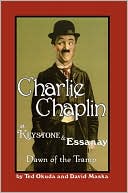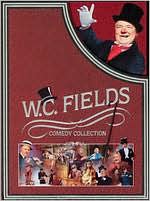Review: A Night Out (1915)
>> Monday, February 21, 2011
 USA/Silent/B&W-34m./Dir: Charles Chaplin/Wr: Charles Chaplin/Cast: Charles Chaplin (Reveler), Ben Turpin (Fellow Reveler), Bud Jamison (Headwaiter), Edna Purviance (Headwaiter’s Wife), Leo White (French Dandy/Desk Clerk)
USA/Silent/B&W-34m./Dir: Charles Chaplin/Wr: Charles Chaplin/Cast: Charles Chaplin (Reveler), Ben Turpin (Fellow Reveler), Bud Jamison (Headwaiter), Edna Purviance (Headwaiter’s Wife), Leo White (French Dandy/Desk Clerk) After a single year in the movie business, Charlie Chaplin had risen from being virtually unknown to ranking as of the most recognized comedy star in motion pictures. Exercising his new-found fame and the power that went with it, Chaplin left Mack Sennett’s Keystone Studios for more money and more artistic control at rival Essanay Studios. At his new home, Chaplin experimented with the formula of his comedies, employing more disciplined story structures, greater character development, better motivation for his slapstick, and occasional excursions into the territories of pathos and satire. However, his first few films borrowed heavily from the frenzied, knockabout style that characterized the Keystones.
After a single year in the movie business, Charlie Chaplin had risen from being virtually unknown to ranking as of the most recognized comedy star in motion pictures. Exercising his new-found fame and the power that went with it, Chaplin left Mack Sennett’s Keystone Studios for more money and more artistic control at rival Essanay Studios. At his new home, Chaplin experimented with the formula of his comedies, employing more disciplined story structures, greater character development, better motivation for his slapstick, and occasional excursions into the territories of pathos and satire. However, his first few films borrowed heavily from the frenzied, knockabout style that characterized the Keystones. A Night Out, Chaplin’s second short with the new company, plays like a “greatest hits” compilation of the earlier intoxicated slapstick shorts that the comedian produced for Keystone. The first half of the comedy is almost a repeat of the second half of The Rounders (1914), with Ben Turpin taking the place of Fatty Arbuckle as Chaplin’s drinking buddy. After consuming numerous unknown adult beverages at the local saloon, Charlie and Ben stagger down the street and into a swanky eating establishment. There they add to their buzz with a couple of beers and proceed to pester a French dandy ( Leo White) who is seated at a nearby table. After several bits of drunken shtick and slapstick roughhousing, the pair are booted out of the restaurant by the brutish head waiter (Bud Jamison, who would go on to comic immortality as a foil of The Three Stooges in their early Columbia shorts).
A Night Out, Chaplin’s second short with the new company, plays like a “greatest hits” compilation of the earlier intoxicated slapstick shorts that the comedian produced for Keystone. The first half of the comedy is almost a repeat of the second half of The Rounders (1914), with Ben Turpin taking the place of Fatty Arbuckle as Chaplin’s drinking buddy. After consuming numerous unknown adult beverages at the local saloon, Charlie and Ben stagger down the street and into a swanky eating establishment. There they add to their buzz with a couple of beers and proceed to pester a French dandy ( Leo White) who is seated at a nearby table. After several bits of drunken shtick and slapstick roughhousing, the pair are booted out of the restaurant by the brutish head waiter (Bud Jamison, who would go on to comic immortality as a foil of The Three Stooges in their early Columbia shorts). The second half of the short covers much of the same hotel-based inebriated humor previously mined in the first half of The Rounders, Mabel’s Married Life, and especially Mabel’s Strange Predicament (all 1914). Chaplin returns to his room at a hotel and flirts with a pretty girl (Edna Purviance), who turns out to be the wife of the head waiter (who coincidentally lives across the hall). Charlie packs his bag and moves to a different hotel, but the waiter and his wife do as well. Through a series of farcical coincidences, Charlie and the waiter’s wife end up in the same room together in their pajamas, which can only spell trouble for the drunken Charlie.
The second half of the short covers much of the same hotel-based inebriated humor previously mined in the first half of The Rounders, Mabel’s Married Life, and especially Mabel’s Strange Predicament (all 1914). Chaplin returns to his room at a hotel and flirts with a pretty girl (Edna Purviance), who turns out to be the wife of the head waiter (who coincidentally lives across the hall). Charlie packs his bag and moves to a different hotel, but the waiter and his wife do as well. Through a series of farcical coincidences, Charlie and the waiter’s wife end up in the same room together in their pajamas, which can only spell trouble for the drunken Charlie. While Chaplin’s work continued to bloom as he gained more creative freedom at his new studio, A Night Out feels more like a step back than a move forward. Chaplin adds nothing to his previous inebriated shtick in his transition from Keystone to Essanay, and the material seems less fresh the second time around. The fact that A Night Out is twice the length of the Keystones that inspired it only adds to the meandering, slower-paced feel of the short. Finally, Ben Turpin proved to be a less talented comic partner than Roscoe Arbuckle, and A Night Out was Chaplin’s final pairing with the cross-eyed comic.
While Chaplin’s work continued to bloom as he gained more creative freedom at his new studio, A Night Out feels more like a step back than a move forward. Chaplin adds nothing to his previous inebriated shtick in his transition from Keystone to Essanay, and the material seems less fresh the second time around. The fact that A Night Out is twice the length of the Keystones that inspired it only adds to the meandering, slower-paced feel of the short. Finally, Ben Turpin proved to be a less talented comic partner than Roscoe Arbuckle, and A Night Out was Chaplin’s final pairing with the cross-eyed comic. The only notable aspect of A Night Out is that the film was the first time Chaplin worked with Edna Purviance, the woman who would go on to be his primary celluloid love interest for the next eight years. In A Night Out, Chaplin appears to be trying to shape Edna into a comedienne in the Mabel Normand mold. In this short, Edna even finds herself in another man’s room in her pajamas through the fault of a dog, as Mabel Normand did in Mabel’s Strange Predicament. While Edna had a different screen presence than Mabel Normand, Chaplin quickly found that she was up to the task of playing both the comic and dramatic female leads that he would need for the better pictures that followed.
The only notable aspect of A Night Out is that the film was the first time Chaplin worked with Edna Purviance, the woman who would go on to be his primary celluloid love interest for the next eight years. In A Night Out, Chaplin appears to be trying to shape Edna into a comedienne in the Mabel Normand mold. In this short, Edna even finds herself in another man’s room in her pajamas through the fault of a dog, as Mabel Normand did in Mabel’s Strange Predicament. While Edna had a different screen presence than Mabel Normand, Chaplin quickly found that she was up to the task of playing both the comic and dramatic female leads that he would need for the better pictures that followed.
Drinks Consumed--Beer, wine (possibly Champagne), and unknown alcohol consumed off screen
Intoxicating Effects--Staggering, stumbling, belching, bickering, public disturbance, physical violence, and bar tossed
Potent Quotables--None to speak of Video Availability--A Night Out is available on numerous budget DVDs. However, the best video release of the short is on Image Entertainment’s Chaplin's Essanay Comedies, Vol 1, which is available as a standalone disc or as part of the box set, Charlie Chaplin Short Comedy Classics. It can also be seen in its entirety at http://www.youtube.com/watch?v=KszgkMeDoXQ.
Video Availability--A Night Out is available on numerous budget DVDs. However, the best video release of the short is on Image Entertainment’s Chaplin's Essanay Comedies, Vol 1, which is available as a standalone disc or as part of the box set, Charlie Chaplin Short Comedy Classics. It can also be seen in its entirety at http://www.youtube.com/watch?v=KszgkMeDoXQ.
Similarly Sauced Cinema--Chaplin’s next inebriated Essanay short, A Night in the Show (1915) was a film version of his celebrated stage drunk act.






























































